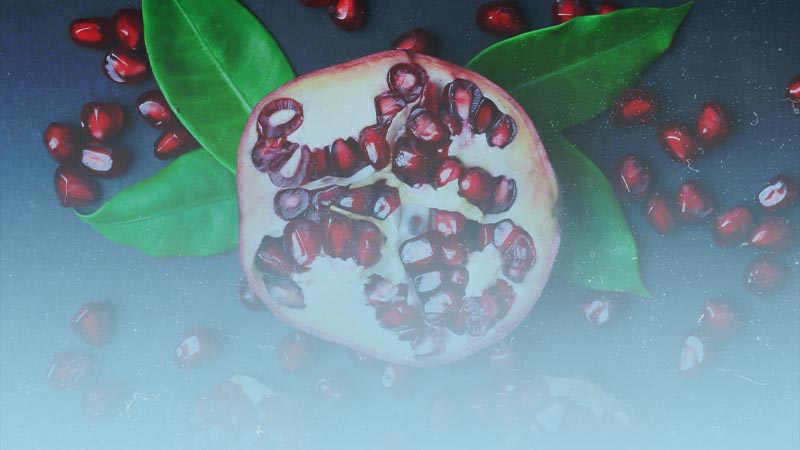Pomegranates are, quite literally, the stuff of legend.
According to Greek myth, the pomegranate is “the fruit of the dead,” but in Roman, Persian, and Indian mythology, the fruit is often used as a symbol of life, fertility, and marriage. Hence, the root, rind, blossom, and seeds were also often used for medicinal purposes.
While we don’t quite look at pomegranates the same way as Ancient Greeks or Romans did, the fruit is still hailed as a superfood. Why? Let us explain …
They’re antioxidant-rich
Did you know that pomegranates have the most potent polyphenol antioxidant known to man? Me neither, but they do!
This could be because pomegranates, while they may not look like it, are actually berries, which tend to have high polyphenol counts overall.
In pomegranates, you can find flavonoids, anthocyanins, punicic acid, ellagitannins, alkaloids, as well as natural sugars and acids. Even if that doesn’t mean much at face value, just understand this laundry list of antioxidants has some serious health benefits.
These antioxidants are antiatherogenic, so they help your body protect against plaque buildup in the arteries, specifically your heart. They are also antihypertensive and have anti-inflammatory properties.
The antioxidants found in pomegranates can also prevent your body from developing free radicals, which cause cancer.
They’re full of antimicrobial properties.
While we no longer use pomegranates in place of medicine, they can actually help your body fight bacterial and viral pathogens.
Specifically, pomegranates are rich in tannins, or polyphenic molecules, which can help fight E.Coli, staph infections, and infections caused by the pseudomonas aeruginosa bacteria.
Aside from the fruit providing antibacterial benefits, the peel can also be used to treat some fungal infections. Pomegranate peels contain punicalagin, a tannin that has a specific potency toward antifungal activity. Specifically, pomegranate peels can have some positive effects on cases of candida albicans, which is a yeast infection that attacks the mouth, skin, and intestines.
So, we’re not saying to use these instead of medicine, but eating pomegranates definitely helps.
They’re good for the brain.
Clearly, pomegranates can do some wonders for your body. They can also boost brain function. No, they won’t turn you into Einstein overnight, but pomegranates can have positive effects on your memory.
In a test on mice, pomegranates have been proven to decrease oxidative stress and brain inflammation, as well as with plaque buildup in the brain, which can cause Alzheimer’s.
Even though there have been limited human studies correlating memory and pomegranate consumption, one study shows that, after drinking pomegranate juice for four weeks, participants were better able to complete verbal and nonverbal memory tests.
While the pomegranate isn’t exactly seen as a symbol of life today, the Romans, Persians, and Indians definitely had a point – the pomegranate can have some real medicinal and health benefits throughout the body.
Despite being unconventional and a little cumbersome to eat, the next time you’re at the grocery store, you might want to consider picking up some pomegranates – or at least pomegranate juice. They might be messy, but they’ll keep your brain and body healthy all winter long.
- What’s in Season? July Produce Guide - July 8, 2025
- Choosing the Right Oil: Health, History & the Greek Standard - July 1, 2025
- What’s in Season? June Produce Guide - June 3, 2025








